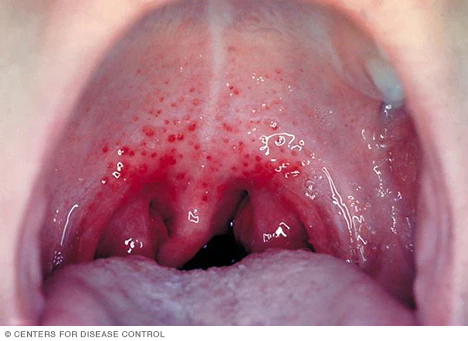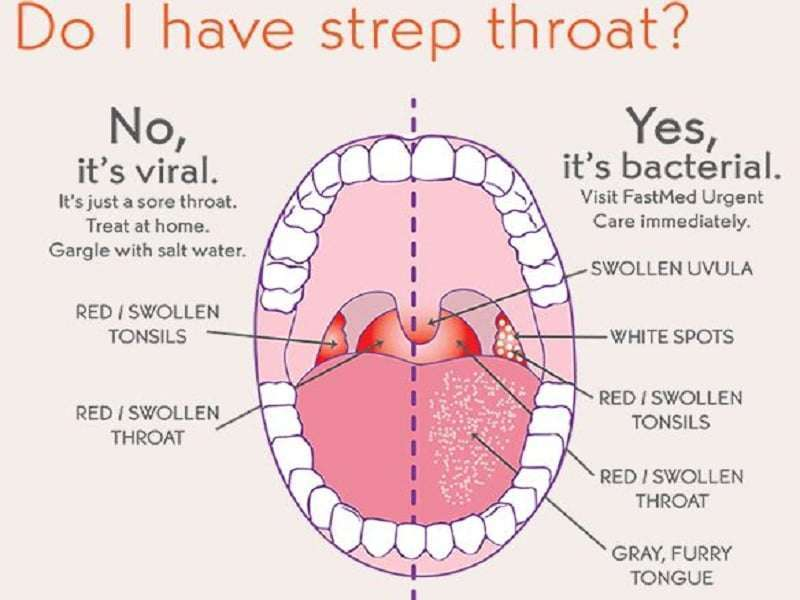Do you suffer from an itchy throat, painful swallowing, and white patches in the back of your throat? Sounds like you may have the infection known as Strep Throat! Although common among kids around five to fifteen, anyone can get strep throat.
In this blog post, we'll discuss what Strep Throat is and how it's diagnosed and treated so that you know all about this contagious bacterial infection.
Understanding the Basics of Strep Throat
Strep throat is an infection caused by Streptococcal bacteria, which can live in the nose and throat. It is incredibly contagious and is spread through contact with the saliva or mucus of someone infected. Symptoms may include a sore throat, fever, body aches, swollen neck glands, difficulty swallowing, white patches in the throat, and an itchy or scratchy feeling.
Diagnosing strep throat is done by a physician through a throat swab. A positive result means that the bacteria has been detected in your throat, and you have strep throat. Treatment typically consists of antibiotics to kill the infection and home remedies such as getting plenty of rest and drinking lots of fluids.
It is important to get treatment as soon as possible, especially in children, as strep throat can lead to serious complications such as rheumatic fever - a condition that affects the joints, heart valves, and skin. The best way to protect yourself from strep throat is by washing your hands often, covering your mouth when you cough or sneeze, and avoiding contact with someone infected.
Symptoms of Strep Throat 
Strep throat is a bacterial infection caused by the Streptococcus bacteria. It is highly contagious and can be spread through contact with the saliva or mucus of someone infected. Symptoms typically include a sore throat, fever, body aches, swollen neck glands, difficulty swallowing, white patches in the back of your throat, and an itchy or scratchy feeling.
Other symptoms may include bad breath, headache, abdominal pain, and swallowing pain. In severe cases, patients may also experience vomiting, red spots on the roof of the mouth, an enlarged spleen or liver, and swollen lymph nodes in the neck. It is important to note that these symptoms can also be signs of other illnesses, so it is best to consult a physician if you are experiencing any of them.
When diagnosing strep throat, your doctor may take a throat swab or perform a physical exam to check for swollen glands in the neck. Additional tests, such as rapid antigen testing and throat cultures, may also be done to confirm the diagnosis.
How is Strep Throat Diagnosed Treatment?
Strep throat is usually treated with antibiotics, such as penicillin or amoxicillin. If a person has a penicillin allergy, alternative antibiotics may be prescribed. It is important to take all the medication prescribed by your doctor and finish the entire course of treatment, even if symptoms have improved. In addition to antibiotics, home remedies such as getting plenty of rest and drinking lots of fluids may help relieve the symptoms.
It is important to note that strep throat can lead to more serious complications if left untreated, so it's crucial to seek medical attention when experiencing any of the symptoms. To prevent infection, it is best practice to wash your hands often, cover your mouth when you cough or sneeze, and avoid contact with someone infected.
Is there a Treatment for Strep Throat
Yes, strep throat is usually treated with antibiotics. It is important to take all the medication prescribed by your doctor and finish the entire course of treatment, even if symptoms have improved. In addition to antibiotics, home remedies such as getting plenty of rest and drinking lots of fluids may help relieve the symptoms.
It is also important to practice good hygiene, such as washing your hands often, covering your mouth when you cough or sneeze, and avoiding contact with someone infected. If left untreated, strep throat can lead to more serious complications, so seeking medical attention is important if any symptoms appear.
What are Some Complications that can result from Strep Throat?
Strep throat can lead to more serious complications, such as rheumatic fever, if left untreated. This condition affects the joints, heart valves, and skin. It is important to seek immediate medical attention for any of the symptoms associated with strep throat toto prevent further infection progression and avoid potential complications from developing.
Other complications that can occur with strep throat include kidney inflammation, sinus infection, meningitis, and ear infections. It is important to take all the medication prescribed by your doctor and finish the entire course of treatment, even if symptoms have improved.
In addition to antibiotics, home remedies such as getting plenty of rest and drinking lots of fluids may help relieve the symptoms.
Tips to Help Prevent the Spread of Strep Throat in Your Home
Strep throat is a highly contagious bacterial infection that can spread quickly in close quarters. It is important to take preventive measures to avoid the spread of strep throat and other infections within your home. Here are some tips to help prevent the spread of strep throat:
1. Wash Your Hands Often – Washing your hands with soap and warm water is one of the best ways to prevent the spread of germs. Be sure to wash your hands frequently throughout the day, especially after touching any surfaces or objects that may have come in contact with an infected person’s saliva.
2. Avoid Close Contact – Strep throat is highly contagious through close contact, so it is important to avoid close contact with anyone infected. This includes kissing, hugging, sharing utensils or drinking glasses, and any other activities that involve the exchange of saliva.
3. Clean and Disinfect Surfaces – Be sure to clean and disinfect surfaces in your home regularly with a bleach-based cleaner. This will help to reduce the spread of bacteria and viruses that can cause strep throat and other infections.
4. Isolate Infected Individuals – If someone in your home is infected with strep throat, it is important to isolate them from others by keeping them in a separate room. This will help prevent the spread of the infection to other household members.
5. Wear a Mask – If you are caring for someone with strep throat, it is important to wear a mask to protect yourself from catching the infection. Disposable masks should be worn and changed regularly to ensure that germs aren’t passed on to other people.
FAQs
Q1. Is strep throat serious?
A1. Strep throat can be a serious infection if left untreated, as it can lead to more serious complications such as rheumatic fever and kidney inflammation. It is important to seek medical attention if any of the symptoms appear toto prevent further infection progression and prevent potential complications.
Q2. How can I prevent the spread of strep throat?
A2. Preventive measures are important to avoid the spread of strep throat and other infections within your home. This includes washing your hands often, avoiding close contact with anyone who may be infected, cleaning and disinfecting surfaces regularly, isolating infected individuals, and wearing a mask if you are caring for someone who has strep throat.
Q3. How long does strep throat last?
A3. Strep throat usually lasts 7-10 days and can be treated with antibiotics prescribed by your doctor. However, it is important to finish the entire course of treatment, even if symptoms have improved, to ensure that all of the bacteria have been eliminated. It is also important to note that even after treatment, the throat can take several days to feel better.
Conclusion
Strep throat is a highly contagious bacterial infection that can cause severe symptoms. It is important to take preventive measures to avoid the spread of strep throat and other infections within your home. Washing your hands often, avoiding close contact with anyone who may be infected, cleaning and disinfecting surfaces regularly, isolating infected individuals, and wearing a mask when caring for someone with strep throat can all help to reduce the spread of this infection. If you think you or your child may have strep throat, it is important to seek medical attention toto get a proper diagnosis and treatment.





